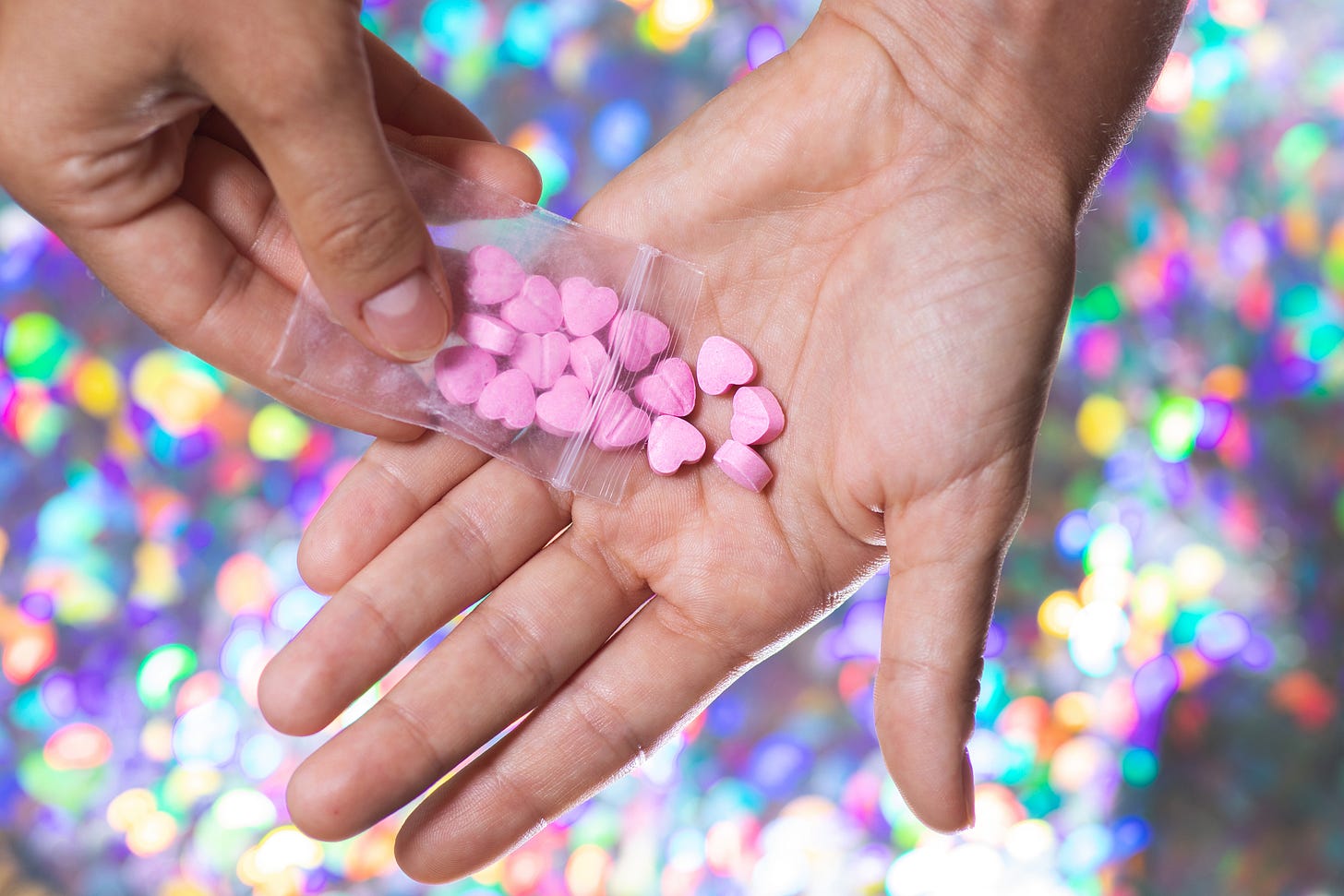The Reductionism of the Dopamine Hit
How this Phrase and Ridiculous Others Oversimplify and Violate (Vol. 5; Issue 11)
Expanding upon earlier rants on reductionism, today I explore a dangerously overused phrase, namely dopamine hits.
People often use the phrase when when describing a pleasurable experience. Deeper digging reveals that dopamine is, in fact, associated with wanting or desiring rather than pleasure itself. The chemical motivates one to pursue pleasurable experiences. It serves to reinforce such behaviors. Many call dopamine the "feel-good" neurotransmitter because it plays a role in reward, pleasure, and motivation. However, the phrase, “dopamine hit,” is inaccurate and reductionistic—even dangerous. A hypothetical scene will help to illustrate these points:
Imagine you meet your old high school friend at the airport, a woman you haven’t seen in a decade. You love her. You have remained occasionally in touch with her via email and text over the years. Here are just a few of the problems associated with using the phrase, dopamine hit, to capture your experience.
Brain chemistry offers only one angle on the complexity of human subjectivity. You cannot “see” or “feel” the alleged dopamine hit. (I use the word, alleged, because literally millions of neurotransmitters spew across synapses every nanosecond). Consider a few of the other angles, like those you consciously (or unconsciously) experience. The memories you have of your friendship with this person rush into your mind as you pick up her bags and walk with her to your car. Were you once lovers? If so, then you might wonder if you still feel attracted to her, or vice versa.
The get-together can also be analyzed through the lens of culture. Was she an exchange student from Eastern India? If so, perhaps she’s wearing a Sari. The colors of her outfit will impact your body-mind. Her accent, a reminder that her primary language was Hindi, brings additional associations. The conversation starts, in its usual nonlinear way. Perhaps the two of you remember a scene from high school, maybe ones involving other people in the class. Maybe you both played in the school’s orchestra and remember incidents in the band or certain musical pieces performed. The shared memories become part of both of your experiences.
A swirling array of other thoughts and feelings run through your mind and through hers. If a friendship trend is solidified, then you’d make plans for separate beds. If the potential exists for lovemaking, then the the two of you might move into a sexual mode. It is likely you will make plans for the rest of the day, the evening, or the next day. These, too, will elicit images.
Regarding pleasure and the concept of a dopamine hit, the situation could easily transition into the uncomfortable. What if your desire for romance is rebuffed? What if your friend tells you your apartment is “a disaster?” Alternatively, what if you just happen to feel irritable on the day she arrives? This brief overview shows how personal experiences of our lives dynamically churn, ranging from the biological to the sociocultural.
Reducing the pleasure of an encounter with an old friend, or to any of life’s positive experiences, absurdly simplifies. Additionally, the phrase “dopamine hit” is technically incorrect. Neurons in the ventral tegmenal area (VTA) and the substantia nigra pars compacta synthesize dopamine from the amino acid tyrosine when, as noted, one feels a wish or a yearning for a certain experience. In the interest of accuracy, shouldn’t one begin with neurons, their location, and the amino acidic precursor? And shouldn’t the fact that these “hits” are associated with not pleasure but desire be emphasized?
Keep reading with a 7-day free trial
Subscribe to Journeys Into the Unconscious Mind to keep reading this post and get 7 days of free access to the full post archives.


